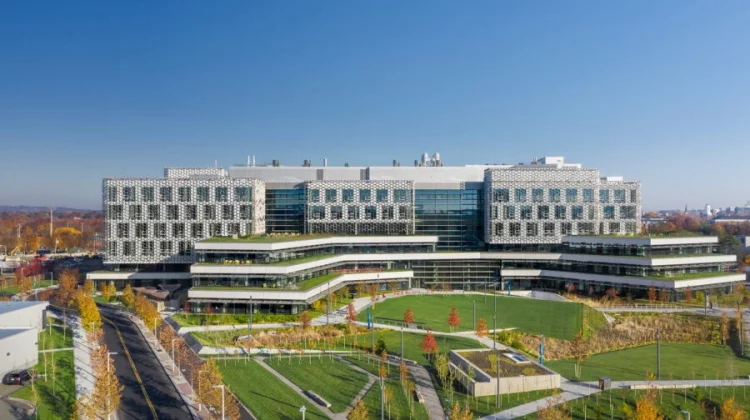
Harvard University has launched a new initiative designed to help speed up the translation of innovations from its labs into start-ups that bring to market products and services that address climate change, alternative energy, sustainability and a range of other global challenges.
Housed in the university’s Science and Engineering Complex (SEC; pictured above) in Allston and focused on the physical sciences and engineering across the university, the Harvard Grid will enable entrepreneurially minded Harvard researchers and students to translate their research into start-ups.
A collaboration between the Harvard John A Paulson School of Engineering and Applied Sciences (SEAS) and the Harvard Office of Technology Development (OTD), the Grid will provide researchers and their emerging ventures with internal accelerator funding, physical space, educational programming and connections to alumni, investors and the start-up ecosystem. The goal is to advance promising technologies to the stage where they can be the basis of a start-up and attract seed capital.
‘Early-stage academic research often requires translational development that is beyond the scope of traditional government research funding,’ said Isaac Kohlberg, Harvard’s chief technology development officer and senior associate provost. ‘The Grid provides the infrastructure and environment for Harvard researchers to advance their innovations and create more impactful start-ups.’
‘The Harvard Grid will be a focal point for translational activities in the sciences and engineering,” said Frank Doyle, the John A Paulson Dean of SEAS. ‘It will help nurture a new generation of Harvard entrepreneurs and innovators, and represents an important milestone in our mission to bring technology and talent to solve real-world problems.’
Doyle added that an animating priority of the new initiative is to increase the diversity of founders by expanding access to resources and mentorship for women and members of groups traditionally underrepresented in entrepreneurship and venture capital.
Accelerator funding provided through the Grid will build on a track record of success established by OTD. Since 2013, projects advanced by Harvard’s Physical Sciences and Engineering Accelerator have culminated in new start-ups, licences to established companies and research collaborations with industry.
Now part of the Grid, the accelerator will have increased grant-making capacity. Selected teams will join an entrepreneurial cohort with dedicated physical space at the SEC. OTD staff and industry experts will provide ongoing guidance to the entire research community.
The Grid will advance its educational mission by integrating innovation and entrepreneurship into the curricular and co-curricular life of SEAS. Workshops, lectures and other community programming will help students, postdocs and faculty build entrepreneurship and translational skills, expose participants to leaders from relevant fields and engage the broader community of start-ups, industry, investors and alumni.



